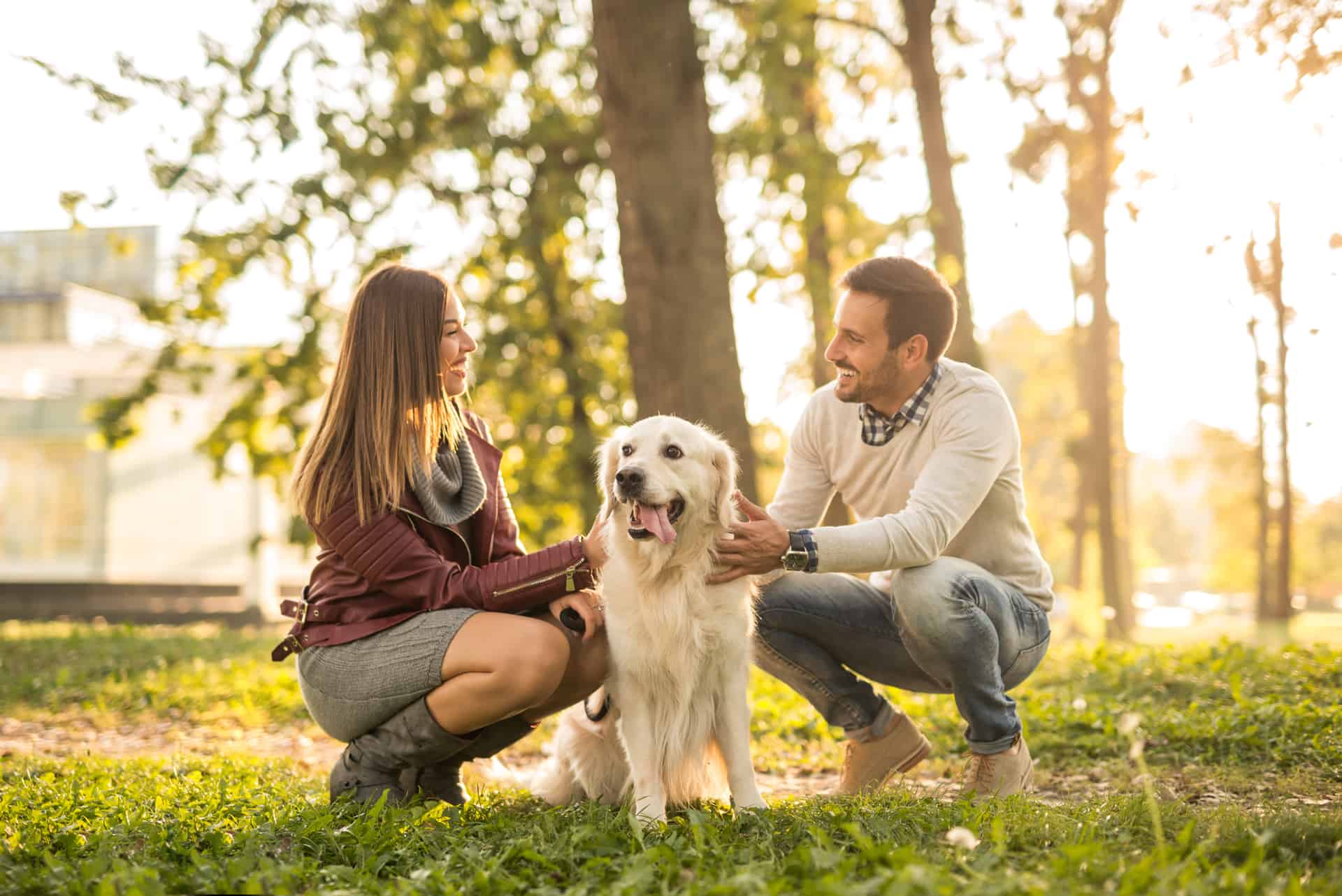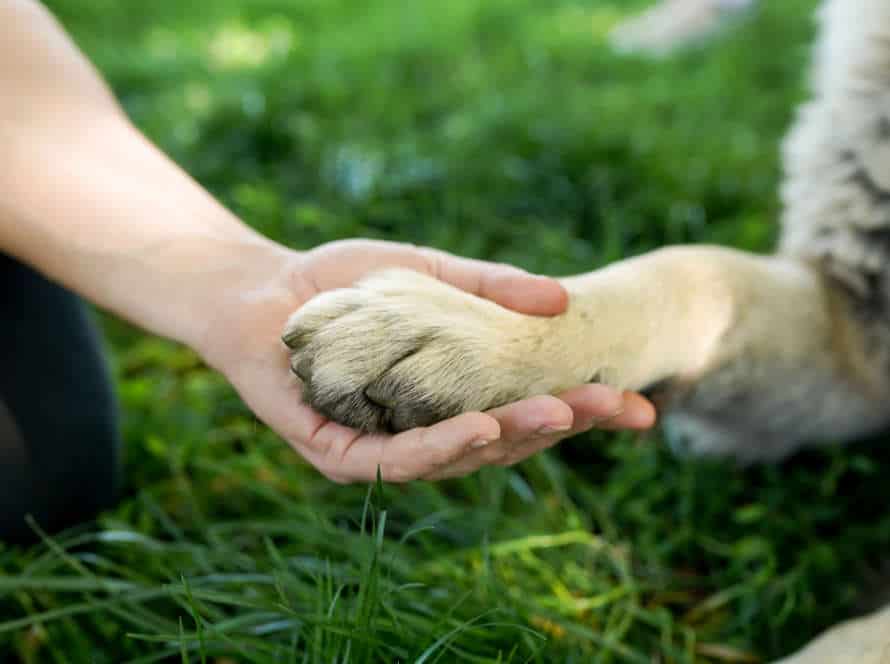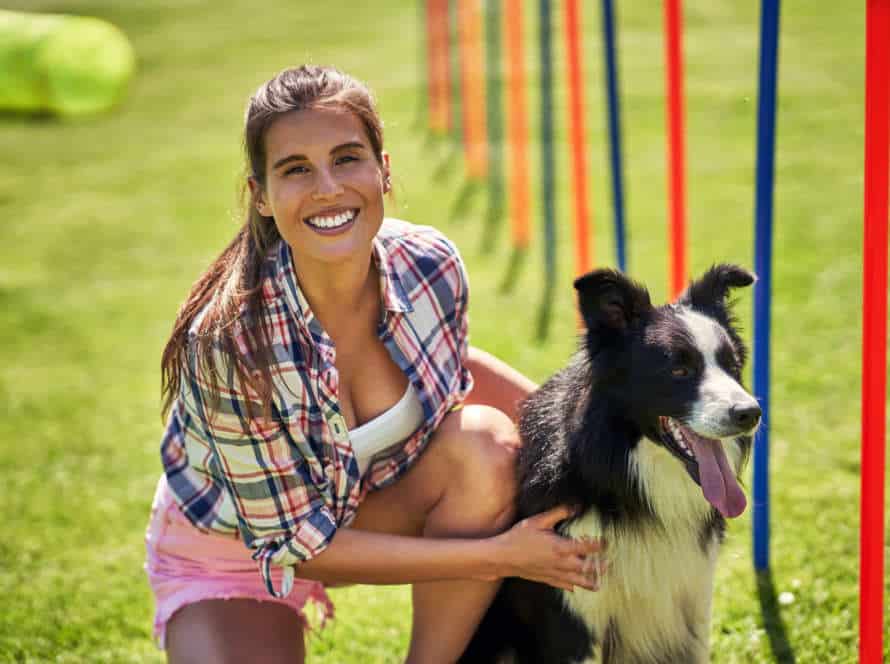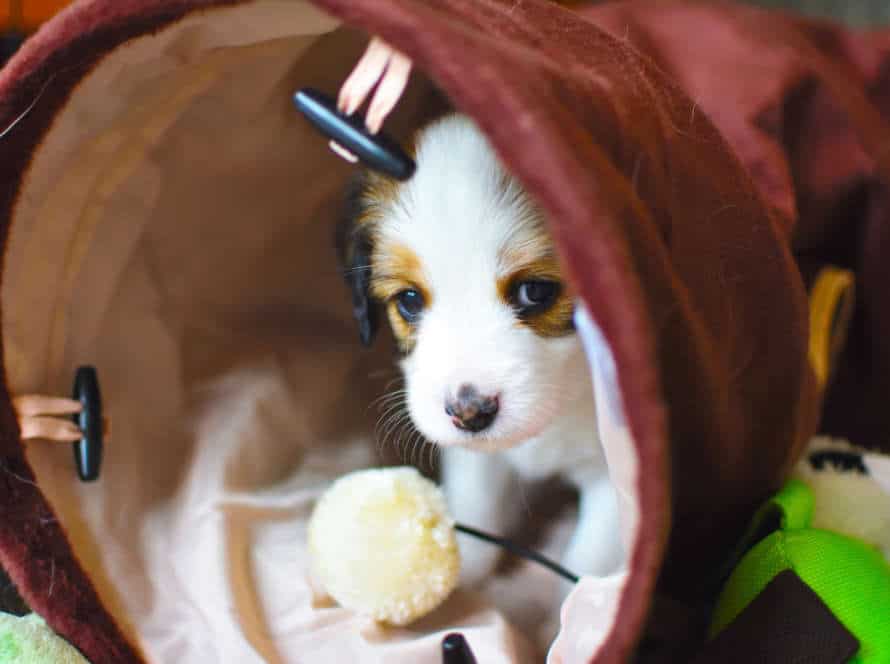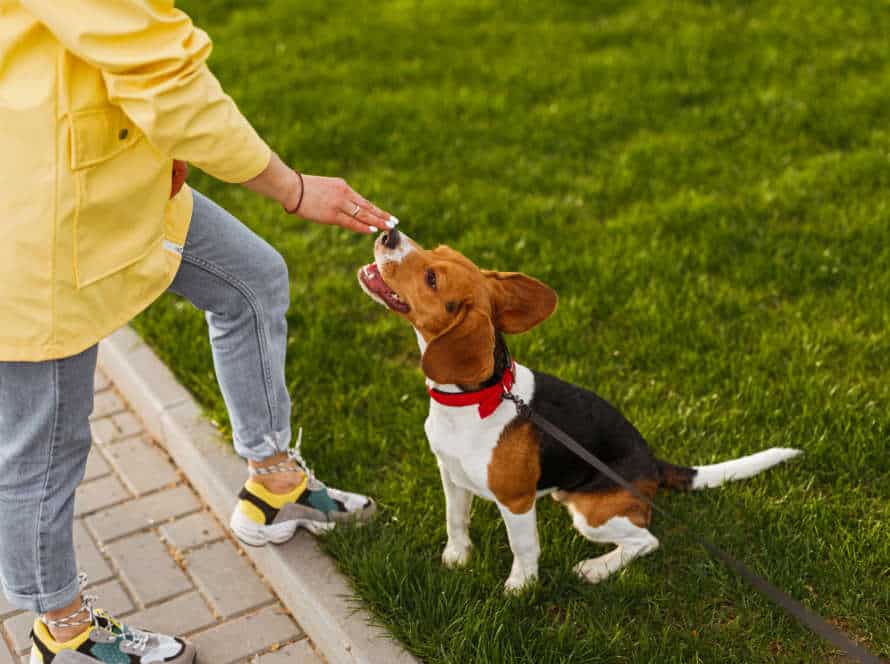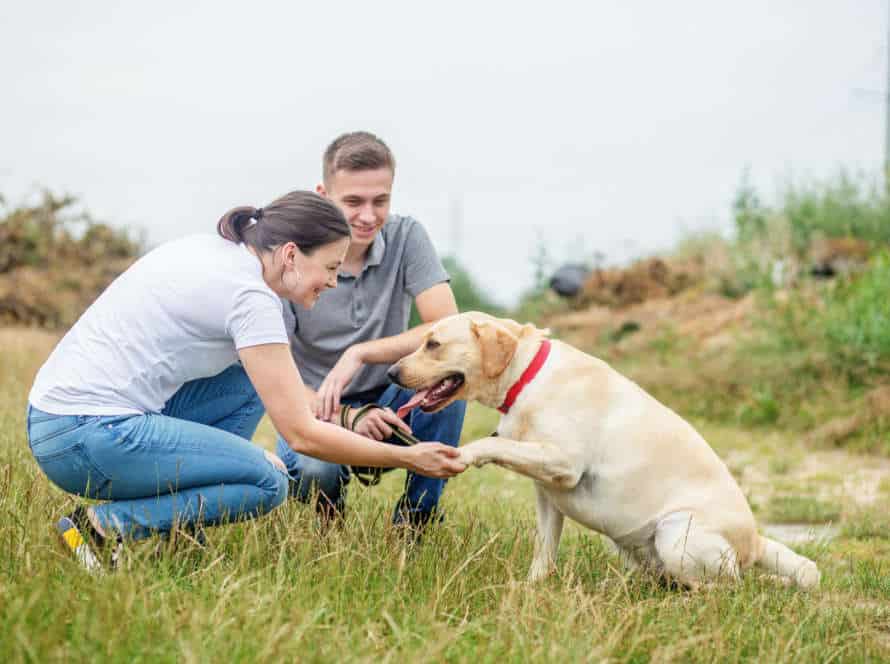Socialization Through Interactive Play: Boost Confidence and Trust
Interactive play is great for socializing your pet. It helps their confidence and trust in you and others. Plus, it helps them learn how to interact with their environment. Here are some tips:
- Choose toys that interest your pet.
- Start playing in a familiar place where they feel safe.
- Gradually increase complexity with different toys, places, and social interactions.
- Use positive reinforcement for good behavior.
Regular interactive play helps pets stay active and happy!
Benefits of Socialization for Dogs
Socialization is key for dogs. They need to feel safe and secure, and to trust and bond with other pups and people. The best way to accomplish this? Interactive play! Through interactive play, dogs can learn how to socialize and build confidence. Let’s take a look at what interactive play can do for them.
Benefits of interactive play include:
- Better socialization,
- Improved trust,
- More confidence.
Increased confidence and trust in social situations
Interactive play is a great way to give dogs more confidence and trust. It has lots of benefits, like making them happier, calmer, and more resilient. Plus, they tend to be better-behaved and less stressed.
Benefits of interactive play:
- Bonding: Helps build a strong bond between dog and owner.
- Exercise: Good for burning off energy and staying fit.
- Positive reinforcement: Dogs link playtime with positive experiences.
Interactive play is a fun way to help dogs learn and grow. It has lots of advantages for both pets and their owners.
Reduced anxiety and fearfulness towards unfamiliar experiences
Interactive play is key for socializing your pup. It helps build trust and reduces stress. It also helps them be comfortable with handling and grooming, which is important for their health.
Socializing with different people, sounds, and environments can help prevent behavioral issues and make them feel secure.
Playtime can include fetch, tug-of-war, chasing games and training exercises with rewards.
Keep an eye on body language and stress signals when playing to make sure they don’t get overwhelmed.
Introduce new experiences gradually, so they can adjust at their own pace.
Socializing through play can make your pup happy, healthy and confident in any situation. It also strengthens the bond between you and your furry friend!
Improved ability to communicate and interact with other dogs and humans
Socializing your pup is important for their overall health. It has many benefits, like improved communication and interaction with other dogs and people, and more self-assurance and trust. Interactive play can be a great way to socialize your pup.
Here are some great benefits:
- Pups learn to read and understand body language. Interactive play helps them know how to communicate with other dogs and people and avoid conflicts.
- Confidence and trust increase. When they take part in interactive play, it helps them trust their instincts and their owners.
- They learn proper behavior. Socialization through interactive play helps them know when playing with other dogs and humans what is acceptable.
- Aggression decreases. Socializing correctly can stop or reduce aggressive behavior in other dogs, humans and animals.
Pro Tip: Start socializing your pup when they are young so they are comfortable around other dogs and people later in life.
Types of Interactive Play for Dogs
Interactive play for dogs is a great way for them to learn to socialize! It builds their trust and confidence. What types of interactive play are there? Here, we’ll go into details about some kinds. This way, your furry best friends can have the best quality of life!
Fetch and retrieve games
Fetch and retrieve games are great for dogs! Not only do they get physical activity but also mental stimulation. There are several types of fetch and retrieve games, like:
- Classic fetch – throw a ball or toy, and your pup brings it back.
- Hide-and-seek – hide a toy or treat around the house or yard and let your dog search.
- Flyball – dogs compete to jump over obstacles, retrieve a ball, then return to their handler.
- Water retrieve – your pup retrieves toys in the water, great for doggos who love to swim.
- Frisbee – your pup catches a frisbee thrown by their handler. Use a soft frisbee designed for dogs to avoid injury.
Interactive play is great for socialization, confidence and trust in dogs. It also strengthens the bond between the handler and the dog.
Pro tip: Always supervise your pup during interactive play. Don’t use toys that are too small or can be swallowed.
Tug of war
Tug of war is an awesome play activity for dogs! It gives ’em physical exercise, mental challenges, plus socialization opportunities. But it’s super important to have clear rules to stop any trouble for you or your pup. Here are some tips for safe tug of war with your pup:
- Use a special tug toy, not things like socks or towels that could be confused as something else.
- Train your pup to “drop it” or “leave it” on command, so they won’t guard the toy.
- Don’t let aggressive behavior like growling, biting, or jumping occur by setting clear limits.
- Use tug of war as a reward for good behavior like obedience or socializing.
- Watch your pup during playtime and stop the game if either of you show aggression or stress.
By following the rules, tug of war is a cool, safe game that can build trust and confidence between you and your pup!
Agility courses
Agility courses are a stimulating and energizing type of interactive play. It can help your pup become more physically and mentally fit. You can create agility courses at home or at a training facility.
Examples:
- Jumps – Help your pup’s stamina and coordination.
- Tunnels – Teach your pup to crawl and increase agility and focus.
- Weaves – Set up upright poles for your pup to weave in and out of quickly.
- A-frames – Train your pup to climb up and over an A-shaped obstacle. This helps with confidence and balance.
Playing together can help your pup develop trust in you while improving overall health.
Water play
Water play is great for dogs! It helps them stay active, and interact with humans and other pooches. Here are some ideas to try with your pup:
- Sprinklers: On hot days, set up a sprinkler in the backyard and watch your dog have fun.
- Swimming: If your dog loves to swim, take them to a dog-friendly beach or lake. This builds confidence and fitness.
- Fetch: Use a floating ball or stick to play fetch – great for interactive play.
- Agility courses: Set up an obstacle course in shallow water and encourage your dog to jump, weave and splash.
Remember to always supervise, and never make your dog do things they don’t like. With patience and positivity, you can use water play to help your dog trust, and learn socialisation skills.
Hide and seek
Hide and seek is a great way for you and your pup to have fun together! Here are a few benefits of playing this game and some tips for making it even more enjoyable.
Benefits:
- Strengthens trust and confidence. When your pooch finds you, it boosts their confidence in their ability to do so.
- Improves mental and physical agility. It requires your dog to use their senses and physical abilities to find you.
Tips:
- Start with hiding in an obvious place, then increase the difficulty over time.
- Use treats or toys to encourage your pup to come find you.
- Always end with lots of praise and treats!
How to Incorporate Interactive Play into Your Dog’s Routine
Interactive play: a great way to help your doggo with socialization. Build confidence and trust in new situations! Play provides mental and physical stimulation. It also helps with obedience, and gives your pup an outlet for energy. Here are some ways to incorporate interactive play into your pup’s routine:
Determine appropriate playtime and duration
Interactive play is a must for dogs to gain confidence, trust, and to stay physically and mentally active. But it’s important to know when to play and for how long. Here are some tips:
- Observe your pup during play to spot signs of over-stimulation or boredom.
- Start with 5-10 minute sessions and increase length as they become more comfortable.
- Match playtime to their age, breed, size, and physical abilities.
- Use a variety of activities and toys to keep them engaged.
- Supervise and provide rest periods to prevent them from getting too tired or hurt.
Pro Tip: Playtime is a great way to bond with your pup and boost overall well-being.
Choose the right toys for interactive play
When selecting toys for playtime with your pup, think about their size, age, activity style, and likes. Here are some tips to help you pick the perfect toy:
- Take your pup’s breed and size into account. Different breeds and sizes have different strengths and ways of playing, so choose toys that suit their physical abilities and preferences.
- Choose toys that stimulate your pup’s senses. Look for ones with different textures, colors, sounds, and smells to keep them engaged and curious.
- Go for toys that suit your pup’s play style. Do they love to chew, fetch, tug, or shake? Choose toys that fit their favorite activities to keep them entertained.
- Rotate your pup’s toys often. Switching out their toys every few weeks will keep them interested and stop boredom.
By selecting the right toys for your pup, you can promote healthy exercise and interactive play. This may lead to improved confidence, trust, and socialization with humans and other pups.
Establish rules and boundaries
Create rules and boundaries for positive and safe play with your pooch. These will help build socialization, confidence and trust.
Remember to:
- Set out clear boundaries and stick to them.
- Use treats and praise when your pup behaves well and discourage bad behaviour.
- Avoid play that could cause harm or aggression, like tug-of-war.
- Notice your pup’s behaviour and if they are feeling scared or tense.
- Teach and exercise your pup during play to build trust and confidence.
Pro tip: Interactive play is not a replacement for regular exercise, training, and socializing. It’s a great addition to your pup’s daily routine.
Senior dog considerations
As puppies grow old, it’s important to give them extra care and attention. Here are some considerations for senior dogs that owners should have in mind:
- Regular exercise – Exercise is important for all dogs, but senior dogs may have joint pain or other health problems. Make sure your older pup gets appropriate exercise for their age and health.
- Diet & Nutrition – Senior dogs may need different food and feeding times. Talk to a vet about what your senior pup needs, like a lower calorie diet to stay healthy.
- Regular Vet Checkups – Senior dogs should have regular checkups with a vet to monitor their health.
- Interactive Play – To socialize senior dogs and promote trust, play games like hide-and-seek or treasure hunt. This can keep their minds active and healthy.
Socialization Through Interactive Play and Anxiety/Aggression Issues
Interactive play is a great way for kids to socialize. It builds their confidence and trust in others. Tag, hide-and-seek, and cooperative games can teach kids how to interact. Plus, these activities help them practice problem-solving. Teamwork is an important value they learn too. Interactive play also assists kids with managing anxiety and aggression. This article will explain the many benefits of interactive play for children.
Ways to use interactive play to help dogs with anxiety and aggression issues
Playing with your pup is amazing! It’s great for socializing them and helping with anxiety and aggression issues. It’s not only exercise, but it also creates a special trust and confidence between you and your pet. Here are some ideas:
- Fetch: Throw a ball or frisbee. It’s a great low-stress way to help your pup’s energy and build confidence.
- Tug-of-war: Teach your pup impulse control while letting them safely express aggression.
- Hide-and-seek: Have your pup find and retrieve hidden objects. It’s fun and mentally stimulating.
- Socialization: Play with other dogs in a supervised setting. This can desensitize your pup’s reactions.
Keep it light, make sure your pup feels safe and included. Pro tip: Always supervise and reward good behavior.
How to recognize when play triggers negative behavior
Play is vital for puppy and dog socialization. But, it’s essential to spot when play causes negative behavior like anxiety or aggression. These signs may show up:
- Raised hackles and a stiff body.
- Growling and barking too much.
- Nipping, biting or scratching.
- Refusing to obey orders.
- Excessive panting or drooling.
If you spot any of these, end the play session and give your pup a break.
Pro tip: Always watch your dog’s playtime and introduce them slowly to new toys, people, and other dogs. This way, socialization won’t trigger bad behavior.
Tips for addressing negative behavior during playtime
Playtime is essential for socializing pets. But, negative behavior like anxiety or aggression can make it hard to learn social skills. Here are some tips to help:
- Start slow. Begin with less stimulating activities and short play sessions. Then, increase intensity and duration gradually. This reduces stress and prevents outbursts.
- Reward calm, friendly behavior with praise, treats, or toys. This builds positive associations with socialization and play.
- Monitor body language. Look for signs of fear, aggression, like growling, raised fur, or tail tucking. Take a break and try a different approach if you spot these signs.
- Use interactive toys. Puzzle and fetch toys can help redirect anxious or aggressive behavior and encourage positive interaction.
Pro Tip: Interacting through play is a fun way to build confidence and trust. Following these tips can help your pet learn social skills and improve their wellbeing.
Conclusion
Interactive play has many benefits. It helps build confidence, trust, and a sense of community. These social skills can lead to new knowledge and strong friendships. So, interactive play is great for building relationships and self-confidence.
Recap benefits of interactive play for socialization
Interactive play isn’t just for fun. It gives many benefits for socialization. Kids who take part in interactive play are more likely to develop their social skills. Such as communication, teamwork and problem-solving. It can also make them more confident and trusting. And help them handle stress and feel better emotionally.
Guide your children to interact and engage in activities. It will have a good influence on their social and cognitive development.
Pro tip: Get your child to play with other kids and join group activities. Boys and Girls clubs, community centers, and recreational parks often have interactive programs. This can help them socialize and play in a group, even outside the home.
Encouragement to incorporate interactive play into daily routine
Interactive play can give you amazing benefits both mentally and physically. It can even help you with socialization, self-confidence, and trust. Here’s how:
- It can keep you active, reducing stress and improving physical health.
- Brain health and cognitive functions get a boost too. Stimulating your mind and encouraging creative problem-solving are key.
- Teamwork, communication, and cooperation are all improved by interactive play.
- You can explore, experiment, and build trust in yourself and others.
Overall, interactive play is a great way to look after your health and happiness. So, why not give it a go? Pro tip: Combine activities you already enjoy with interactive play. For example, board games with pals or a sports team.
Additional resources for further education
Are you looking for more ways to boost confidence and trust through play? There are many helpful tools available. Here’s what to look into:
- Books like “Social Intelligence” by Daniel Goleman, and “The Art of Roughhousing” by Anthony T. DeBenedet and Lawrence J. Cohen.
- Online courses on child development and psychology like those on Coursera, edX and Udemy.
- Webinars and Ted Talks that delve into related topics.
Take advantage of these resources to gain insight into how play can improve confidence, trust and overall wellbeing. Pro tip: Don’t limit yourself to one source, explore multiple sources to get a comprehensive education.
Frequently Asked Questions
Q: What is socialization through interactive play?
A: Socialization through interactive play refers to the process of learning social skills and developing social bonds through play activities.
Q: How does interactive play help boost confidence?
A: Interactive play allows children to explore and experiment in a safe and fun environment, which can help build their confidence and self-esteem.
Q: Can interactive play help with trust-building?
A: Yes, interactive play can help build trust between children and caregivers or peers by providing opportunities for cooperation, communication, and empathy.
Q: What are some examples of interactive play activities?
A: Some examples of interactive play activities include board games, team sports, puppet shows, role-playing games, and scavenger hunts.
Q: At what age should children start socializing through interactive play?
A: Children can start socializing through interactive play as early as infancy, but it is important to select appropriate activities based on their developmental stage and abilities.
Q: How can caregivers support socialization through interactive play?
A: Caregivers can support socialization through interactive play by providing opportunities for play, setting up a safe and welcoming environment, modeling positive social behaviors, and encouraging communication and problem-solving skills.

